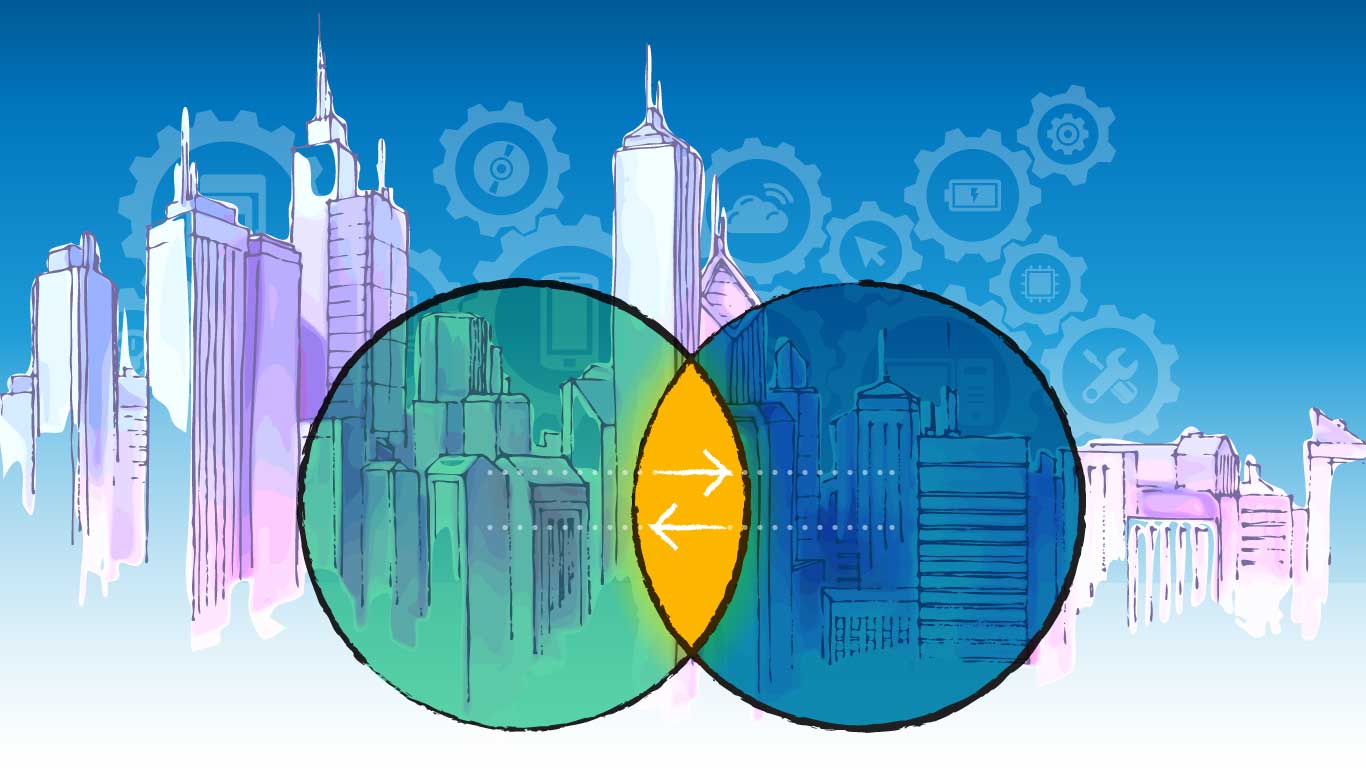This post has already been read 5523 times!
How biology can shed light on business
“The edge effect” is a term from ecology that I believe can give us insight into how we can improve business and the technology used to power it.
First, what is an “edge” in this context?
An edge is where two different biological “communities” or landscapes meet. So for instance, where the sea meets the beach is an edge, and where a forest ends and the savanna or grassland begins is an edge.
The “Edge Effect”
“The ‘edge effect’ is an ecological concept that describes how there is a greater diversity of life in the region where the edges two adjacent ecosystems overlap, such as land/water, or forest/grassland. At the edge of two overlapping ecosystems, you can find species from both of these ecosystems, as well as unique species that aren’t found in either ecosystem but are specially adapted to the conditions of the transition zone between the two edges.”
(Source: “Edge Effect” Deep Green Permaculture)
There’s a richness at the intersection of these different environments, and it’s not just because the intersection contains members of region 1 + region 2. The intersection creates a new transitional environment that supports entirely new species that are not native to zone 1 or zone 2.
So the overlap is greater than the sum of its parts.
These areas of intersection are called “ecotones,” and they have a very interesting property. Besides having more diversity, they are also more productive.
How so?
There are a number of reasons but here are two relevant ones:
- This relatively small area has three different environments with a highly concentrated diversity of species, animals, insects, vegetation, water and ground conditions. If you live there, you have access to all these different resources.
- Energy flows between these neighboring environments, transferring nutrients, insects and material between the two. For example, the tide and waves will ebb and flow along the beach, throwing sea creatures and sea weed onto the beach, and taking sand, critters other material from the beach into the sea. Similarly wind will blow over the savanna and carry grass, leaves and insects into the trees on the edge of the forest.
“Okay Nigel, but I’m not in the landscaping business, so what do grass and bugs have to do with me?”
The Value Effect
Well think of your business as an environment. You have your own unique product/service, your own team members, management style and technology to tie it all together.
If your business is any good, which I’m sure it is, you have trading partners of some kind, vendors and customers. Each of those companies, and your customers, are separate but adjoining environments.
Do you see where I’m going?
Now where are the richest and most productive regions? Within the box that is the company, or along the edges, the boundary where the energy ebbs and flows, where information, goods and services are exchanged and transferred into new products and into money?
I’d argue it’s at the intersection, the ecotone. The transfer of energy, or trade, is essential to any business. This intersection is where “the gears mesh”.
Great value lies where enterprises intersect, where information and goods are exchanged Share on XWithout the “pull” of demand from one region, there would be no need to produce a good or service in another region. If you’re not trading products and services, not exchanging value for value, in some form, I don’t know what you are, but you’re not a business.
I call this the “value effect”.

The more you can facilitate the flow of energy, information, goods and services across the econtones of businesses, the more value you can create. All other things being equal, the business with a vibrant flow of information and goods flowing freely between its trading partners, is likely far healthier than the business where that flow is inhibited, and only happens in periodic bursts, nightly or weekly.
Networks Not Chains
With today’s globally distributed supply networks, it’s become more urgent than ever to keep the energy flowing and to make the exchange of information, communication and collaboration among trading partners swift and friction-less.
This is not achieved by treating business and supply chains in the traditional, linear fashion. A more accurate and productive perspective is that of an ecosystem or network, where all parties are connected seamlessly, where information and goods can flow unimpeded.
How does your technology landscape perform?
References
Essential Reading
The Network and Digital Supply Chain Disruption
The digital supply chain is causing disruption. Early adopters are making impressive gains, while cautious companies are falling further behind. One Network can help you digitize your supply chain fast – thanks to its disruptive technology, and economically – thanks to its disruptive business model. Learn how…
Supply Chain’s New World Order
Real time networks are replacing traditional supply chains. Learn how companies are using real time, cloud networks for predictive and actionable supply chain analytics, integrated business planning and more…
- How to Avoid a Technology Horror Story - October 31, 2024
- How Chain of Custody Strengthens the Supply Chain - October 11, 2022
- Inside Next Generation Supply Chains - November 8, 2021


